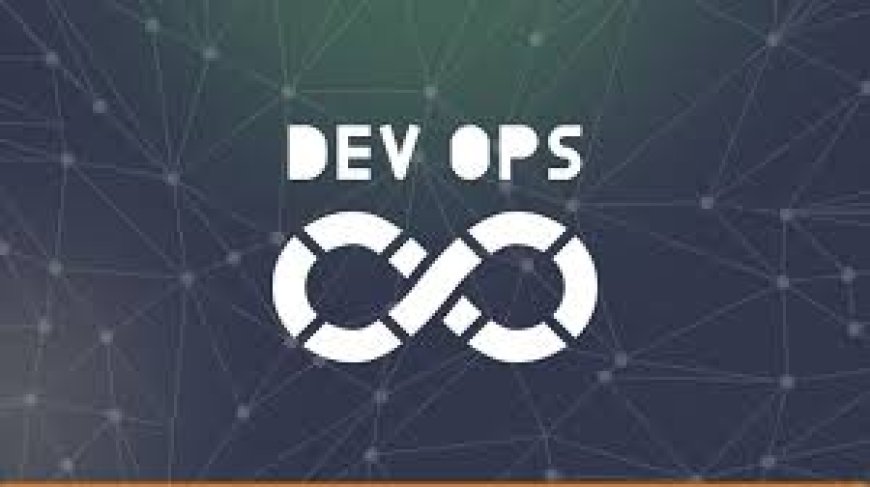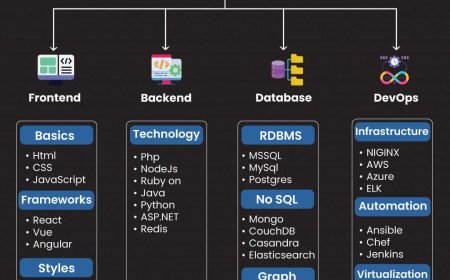What are the main principles of DevOps?
Learn what are the main principles of DevOps, focusing on collaboration, automation, continuous integration, delivery, and faster software deployment.

Introduction
In todays fast?paced digital era, organizations strive to deliver software and services at lightning speed while maintaining high quality and reliability. This is where DevOps emerges as a game?changing approach. DevOps is not just a set of tools; it is a culture and methodology that bridges the gap between development and operations teams, ensuring seamless collaboration and faster delivery.
Understanding the main principles of DevOps is crucial for businesses and professionals who aim to improve software delivery, enhance teamwork, and achieve operational excellence. Lets explore these principles in depth and learn how they transform the way technology teams work.
What Is DevOps in Simple Terms?
DevOps is a combination of Development and Operations. It focuses on uniting these two traditionally separate departments to work together throughout the software lifecycle. Instead of following siloed processes, teams share responsibilities, automate workflows, and continuously monitor performance to ensure frequent and reliable releases.
Main Principles of DevOps
Below are the core principles that drive DevOps practices across organizations:
1. Collaboration and Communication
At the heart of DevOps lies strong collaboration between development, operations, QA, and other stakeholders. Open communication reduces misunderstandings, ensures transparency, and accelerates problem?solving. Teams use shared platforms, regular stand?ups, and real?time chat tools to stay aligned.
2. Automation of Processes
Automation is a key driver of efficiency in DevOps. Repetitive tasks like testing, integration, deployment, and configuration are automated using specialized tools. This reduces human error, speeds up delivery, and frees up teams to focus on innovation rather than routine work.
3. Continuous Integration (CI)
CI encourages developers to merge code into a shared repository multiple times a day. Each integration triggers automated builds and tests, ensuring bugs are detected early. This principle minimizes integration challenges and leads to a stable codebase ready for deployment.
4. Continuous Delivery (CD)
While CI ensures frequent integration, Continuous Delivery takes it further by automating the release process. Software can be deployed to production at any time with minimal manual intervention. This improves release frequency, reduces risks, and ensures faster time to market.
5. Infrastructure as Code (IaC)
Infrastructure as Code involves managing and provisioning infrastructure through code and automation instead of manual processes. With IaC, environments are consistent, easily reproducible, and scalable, reducing configuration drift and deployment issues.
6. Monitoring and Feedback Loops
Continuous monitoring of applications and infrastructure is essential in DevOps. Feedback from real?time data helps teams quickly detect performance issues, security threats, or user experience problems. These insights guide improvements and preventive measures.
7. Security as a Shared Responsibility
Modern DevOps integrates security practices into every phase of development, often referred to as DevSecOps. Teams proactively address vulnerabilities and follow compliance standards without delaying delivery.
8. Customer?Centric Action
Ultimately, DevOps is driven by the goal of delivering value to end users. Every principlefrom collaboration to automationis centered on improving user satisfaction, reducing downtime, and providing faster updates.
Why Are These Principles Important?
-
They enable faster and more reliable software releases.
-
They break down silos, creating a unified culture.
-
They ensure better scalability and adaptability in changing markets.
-
They help organizations reduce costs by automating time?consuming processes.
-
They promote continuous improvement through feedback and data analysis.
For professionals aiming to master these principles, specialized training and mentorship are invaluable. Many choose structured learning paths such as DevOps Courses in Chandigarh to gain hands?on exposure and industry?aligned skills
How Do Companies Benefit from DevOps Principles?
-
Reduced Time to Market: Products and features reach users more quickly.
-
Improved Stability: Automated testing and monitoring lead to fewer bugs and outages.
-
Increased Productivity: Teams spend less time fixing errors and more time innovating.
-
Better Customer Satisfaction: Continuous updates and smoother user experiences build trust.
-
Enhanced Security: Integrated security practices reduce risks early in the lifecycle.
Best Practices to Implement DevOps Principles
-
Invest in the right tools for automation, CI/CD pipelines, and monitoring.
-
Encourage a culture of shared responsibility and open communication.
-
Provide ongoing training and upskilling opportunities. For example, many IT professionals upskill by joining DevOps Courses in Chandigarh to stay competitive.
-
Start small, implement changes incrementally, and scale gradually.
-
Establish clear metrics to track progress and measure success.
Conclusion
DevOps certification courses in Chandigarh It is not just a buzzwordit is a cultural shift backed by powerful principles that help organizations deliver better software faster. By embracing collaboration, automation, continuous integration, delivery, and constant feedback, businesses can achieve remarkable efficiency and reliability.
Whether you are an IT professional, a developer, or a business leader, understanding these principles is vital to staying ahead in todays technology landscape. Start incorporating DevOps practices and watch your workflows transform for the better.
FAQs
Q1. What is the core goal of DevOps?
The core goal is to improve collaboration between development and operations teams, enabling faster and more reliable software delivery.
Q2. Is automation necessary in DevOps?
Yes, automation is a critical principle that reduces errors, saves time, and ensures consistent results across environments.
Q3. How does Continuous Integration help in DevOps?
CI helps detect bugs early by merging and testing code frequently, resulting in a more stable software base.
Q4. Can small businesses implement DevOps?
Absolutely. Even small teams benefit from DevOps principles, improving efficiency and scaling with minimal resources.
Q5. Is learning DevOps worth it for IT professionals?
Yes, DevOps skills are in high demand, and professionals with expertise in these principles can significantly boost their career opportunities.



































